15 Books That Will Tangibly Improve Your Life
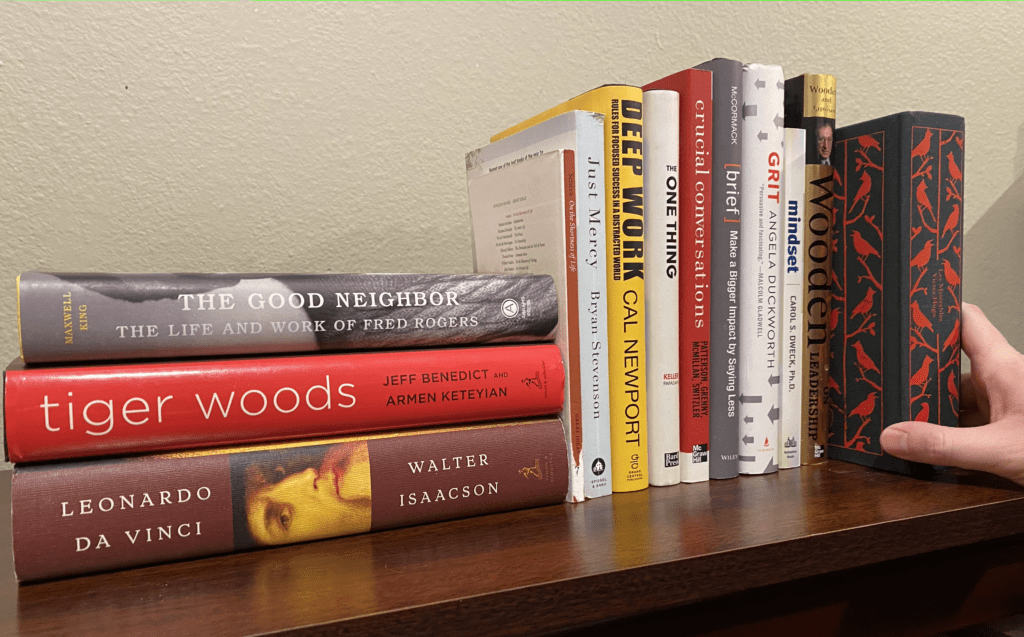
I've seen a lot of reading lists out there labeled "Books to Read Before You Die." (I've even been working my way through my own list like that.)
Even though it's interesting to consider which books you should read before you die, I think it's more practical to seek out books that will tangibly improve your life while you are living it. For truly life-changing books, the earlier you read them, the longer they can positively impact your life.
This past decade, I've had the chance to read over 700 books. I've read a lot of great books during that time, but there's a subset of books that I would credit with tangibly making my life better. Some of these books made me more productive, some helped me gain greater empathy, and others influenced the way I communicate. But each and every one of these books had a profound impact on me, and I bet they will on you too.
Here are the books I would credit with improving my life:
To Develop Deeper Love and Empathy
Les Miserables by Victor Hugo
I often think about books in terms of opportunity cost. To determine whether to read a really long book, I consider whether I'll get more benefit out of that book than I would from two or three shorter books. That mental calculus kept me from reading Les Miserables for a long time. After all, Hugo's masterpiece is big enough to register as a weapon in ten states. (Okay, slight exaggeration, but it does tip the scales at a whopping 1,300 pages.)
My friend and mentor Phil Rogers finally convinced me to read this book when he told me it's his favorite book of all time. And boy, was it worth it. This story contains some of the most selfless acts of love you'll ever read. It also depicts the depths of poverty, the difficulty of reforming one's life after prison, and the problem of viewing everything in the world as black-and-white.
*Note: For many of these old books that weren't originally written in English, the translation matters a lot. For this book, be sure to get the Penguin Classics version translated by Norman Denny (pictured here). The translation makes a huge difference in this book.
The Good Neighbor by Maxwell King
It's impossible to read about Fred Rogers' love and empathy without realizing that you need more of those things in your life. His life story is a call-to-arms for becoming the best version of yourself.
In his show Mister Rogers' Neighborhood, Rogers tackled tough topics like death, divorce, and anxiety--all with simple words and stories that could be understood by his youngest viewers.
He exemplified quiet, humble strength. Rogers refused to conform to America's warped ideal of manliness as showmanship and bravado. He just was who he was, and he wanted his viewers to get to know him as a friend. This is one of the most uplifting and encouraging books I've ever read.
Just Mercy by Bryan Stevenson
I grew up in Boise, Idaho, which is one of the least diverse cities in the country. Until the wave of tragic killings in 2020, I was ignorant of how systemic racism was still impacting our country. This was one of the books I read to try to make sense of everything I was seeing on tv and try to understand the ongoing struggle of my Black brothers and sisters.
It's sad that books like this aren't required reading in school. Growing up, my history classes focused on slavery and racism as "historical" problems of America, but those issues are still here today and this book helps expose that truth.
Bryan Stevenson is a Harvard law graduate who found his calling fighting discrimination in the U.S. justice system. In this book, he shares the story of one of his defendants: Walter McMillian. Just Mercy is tragic and yet hopeful. It's a sad story but important book--one that many of us (myself included) definitely need to read.
To Become More Productive
The ONE Thing by Gary Keller and Jay Papasan
I'm a list person. I create a to-do list for myself every workday and a personal task list every week. But in the world of to-do lists and urgent items, it's easy to just knock out insignificant work rather than working on the tasks that will truly move the needle. Thankfully, there's a great book to re-center us on what's most important.
Keller and Papasan ask questions like, "What's the ONE Thing you can do this week such that by doing it everything else would be easier or unnecessary?" They offer practical tips for getting rid of unnecessary tasks and becoming a ruthless prioritizer.
This is one of the books I've most gifted to other people, and my friends have also sworn by this book's ability to improve their productivity.
Deep Work by Cal Newport
This book completely changed the way I work. Newport is a mathematics professor at Georgetown, and he applies his logical mind to the problem of how to become more efficient and effective. He offers research about multi-tasking, distractions, and human attention spans, then explains how you can change your work habits to accommodate those realities.
Thanks to Newport's convincing arguments, I now work in blocks of uninterrupted focus time that enable me to complete "deep work" (e.g., writing, editing, focusing on complex projects) without getting sucked into more shallow demands like email, slack, and social media.
Deep Work is required reading for anyone who wants to resist the tyranny of their email inbox and accomplish more substantive work.
To Become A Better Communicator
Crucial Conversations by Patterson, Grenny, McMillan, and Switzler
I don't re-read many books, but I've now read this one three times. Throughout the past decade since I first read Crucial Conversations, I've used its lessons to give constructive feedback to colleagues, have difficult conversations with family and friends, and even (unfortunately) fire a few employees.
Feedback is one of those things that is always hard. It's hard to give. It's hard to receive. But the authors share a framework for approaching tough conversations from a position of truly seeking to understand the other person and work together from a position of common ground.
Thanks for the Feedback by Douglas Stone and Sheila Heen
Thanks for the Feedback addresses the other side of the feedback conversation: how to understand and respond to feedback.
Growing up, we're all taught that feedback is important, but we're never given tactics to practically accept it. Without a mental model for accepting feedback, the human tendency is to put your guard up anytime someone shares something negative. Consider this book as a tool to help you put your guard down.
You'll still need to do the hard work of stifling your ego anytime someone gives you feedback. But this book at least offers practical tips and explains how to respond to feedback with curiosity rather than arrogance or shame.
Made to Stick by Chip and Dan Heath
This is arguably the best business book I've ever read. It's also one of the most pragmatic. The Heath brothers provide powerful stories and real-world examples of how to present information in a convincing way.
Made to Stick taught me how to become a better public speaker, trainer, and storyteller--skills that have come in handy throughout my career, regardless of job function or title.
Whenever anyone asks me for a book recommendation about persuasion or communication, this is the first book out of my mouth.
To Develop Mental Toughness
Mindset by Carol Dweck
Some people believe that talent predetermines success: You're either smart or you're not. You're athletically gifted or you're not. You're a "math person" or you're not. That belief is what psychologist Carol Dweck calls the "fixed mindset": the belief that abilities are carved in stone.
I think that's a horrible way to live. Dweck suggests a better way: the "growth mindset." Research shows that our abilities are surprisingly malleable. That fundamental truth changes the way we approach life. It makes us more willing to try new things, more willing to fail.
Powerful book. Powerful research. Mindset will cause you to question many assumptions you've likely held about intelligence.
Grit by Angela Duckworth
This book is like Mindset 2.0. Duckworth takes Carol Dweck's ideas and builds on them to explain why grit (passion + perseverance) is one of the most valuable traits anyone can possess.
Before reading this book, I thought I was a gritty, mentally tough person, but Duckworth taught me that I need to go much further to develop that trait within myself.
As a brief example of what I mean, Duckworth shares this quote from Will Smith about work ethic: “The only thing that I see that is distinctly different about me is: I’m not afraid to die on a treadmill. I will not be outworked, period. You might have more talent than me, you might be smarter than me, you might be sexier than me. You might be all of those things. You got it on me in nine categories. But if we get on the treadmill together, there’s two things: You’re getting off first, or I’m going to die. It’s really that simple.”
On the Shortness of Life by Seneca
Returning to the "opportunity cost" concept, this book is probably the best ROI you'll ever get. It's a slim 100 pages but it reframed the way I think about life, death, productivity, prosperity, and mental health.
On the Shortness of Life is chock full of quotes that could keep your Twitter or Instagram account buzzing for days. But it's also the type of book that helps you re-evaluate where you're spending your time and what you're allowing into your head. Are you focused on the right things? Are you allowing yourself to get anxious about things that don't matter?
Seneca's other books like Letters from a Stoic are also amazing, but much longer and denser than this book. Start here, get your feet wet, then dive into the deep end with some of Seneca's other work.
*Note: I read the translation by C. D. N. Costa, which was excellent. That's also the translation recommended by Ryan Holiday and team at The Daily Stoic.
To Learn the Right Way and Wrong Way to Live
Tiger Woods by Jeff Benedict and Armen Keteyian
Benedict and Keteyian's biography of Tiger Woods is the most gripping biography I've ever read. But it was also surprisingly instructional.
This is the story of a man who reached the highest heights of money, power, and fame, yet still felt empty inside. Tiger could win major championships with a swing and a swagger, but he has struggled to maintain any real relationships with friends and family.
Tiger's relentless quest for competitive glory is what makes him so special but also what makes him so flawed. Learn from his heroics and determination, but let his mistakes serve as a warning.
Wooden on Leadership by John Wooden and Steve Jamison
John Wooden won 10 NCAA basketball championships as the coach of the UCLA Bruins. But his winning record was simply a by-product of his personal character, leadership, and love for his students.
Wooden believed that his first job was to develop his students into people of character; his second was to win basketball games. Many of his students later shared that they learned more about leadership and integrity in their years under Wooden than at any other time of their lives.
Not only is this my favorite leadership book, but it's also a great manual for how to define success in your life and career. If the only scoreboard you care about is the one hanging on the wall, you're playing the wrong game.
Daring Greatly by Brené Brown
Whenever we face new challenges in life, it's common to hear the advice "Fake it 'til you make it." Especially in the business world, people assume that boldness shows strength and vulnerability shows weakness.
But after studying vulnerability for years, Brené Brown realized that our model for understanding vulnerability is flawed. It takes courage to admit uncertainty. It takes strength to admit weakness. It takes bravery to admit fear.
Daring Greatly and its companion Dare to Lead helped me realize that personal connection is fueled through trust and authenticity.
Leonardo da Vinci by Walter Isaacson
Leonardo's copious journals offer a glimpse into the mind of the most curious person who ever lived. He was the first true student of the liberal arts: he wanted to know something about everything.
He painted masterpieces, designed weapons, introduced new ways of drawing geometric figures, sketched ideas for a flying machine, and also dabbled in botany and astronomy. His journals show us that he frequently contemplated deep (and random) questions about life and nature: Which nerve causes one eye's movement to influence the other eye to move? Why are fish in the water swifter than birds in the air? How would you describe the tongue of a woodpecker?
Not only was this book fascinating, but it prompted me to approach the world differently. It gave me license to unleash my childish wonder. Since reading this book, I now pay much more attention to the things around me, because as Leonardo said, creativity requires observation plus imagination.
What books have improved your life? I always love book recommendations, so please leave a comment below.
You can also sign up for my monthly email newsletter to get new recommendations every month of impactful books.
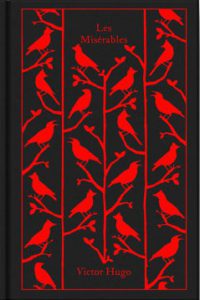
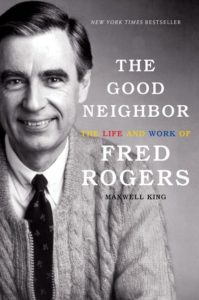
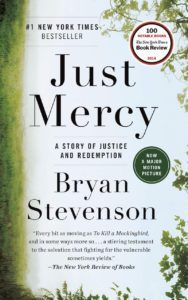
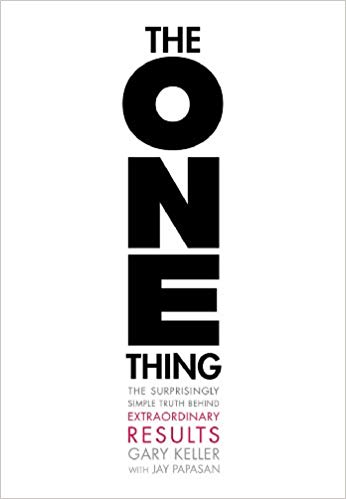
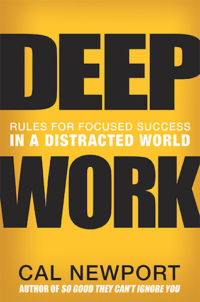
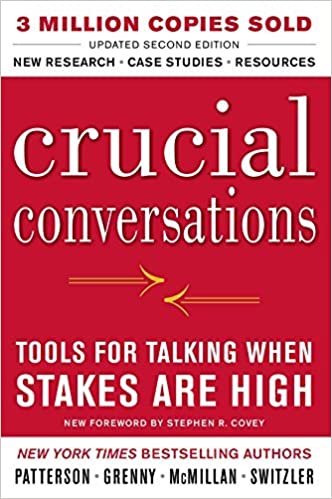
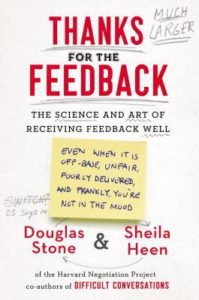
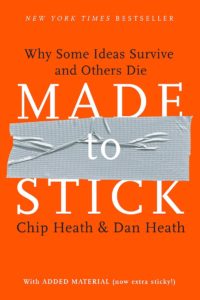
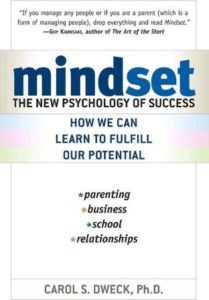
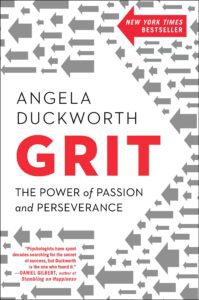
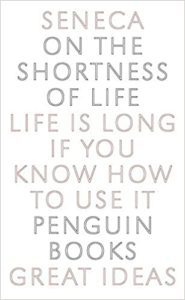
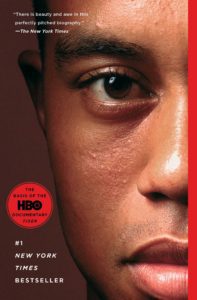
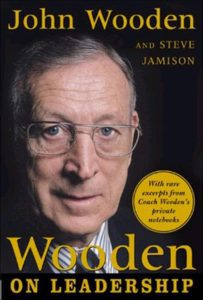
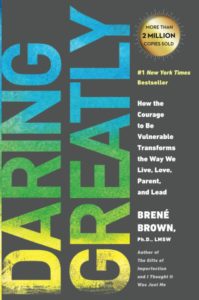
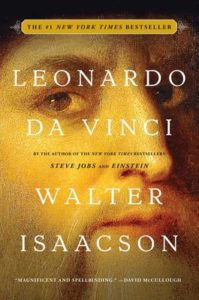

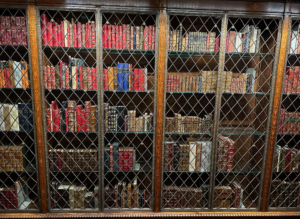

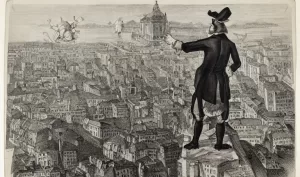
So have you checked out any David Halberstam yet?
No, I haven’t. Which one would you recommend I start with?